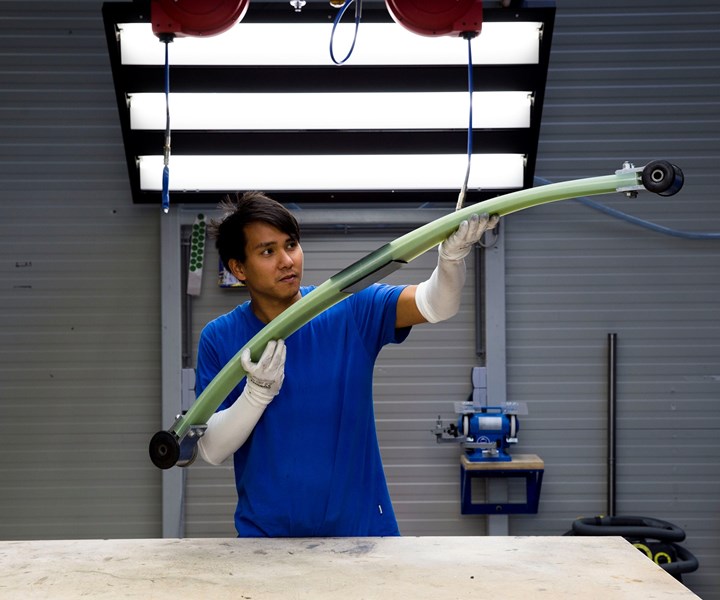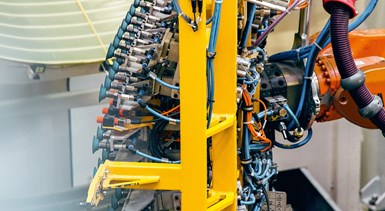SGL Carbon produces composite leaf springs for Ford Transit
The glass fiber composite, longitudinal leaf springs are said to weigh 50% less than conventional steel springs.

Source | SGL Carbon
SGL Carbon (Wiesbaden, Germany) announced on Dec. 11 that it is producing glass fiber composite, longitudinal leaf springs for Ford Transit rear axles in series. This is Ford’s first leaf spring project with composites in series worldwide.
The springs, intended for use with the Transit Skeleton chassis, are designed for high payloads and increased security standards, though are said to weigh about 50% less than conventional steel leaf springs. The serial application is supported by a one-to-one compatibility with standard steel springs.

Source | SGL Carbon
According to SGL Carbon, these leaf springs are the first to be manufactured with pre-impregnated glass fiber fabrics, which are produced at the SGL Carbon site in Willich, Germany. The SGL Carbon component plant in Innkreis, Austria, is responsible for the development and serial production of the springs, and the final products are delivered ready to install to the Ford-Otosan assembly plant in Kocaeli, Turkey.
“The design of these composite longitudinal leaf springs for the Ford Transit Skeleton chassis is yet another milestone in the development of production-ready lightweight leaf springs. They are not only characterized by their special material properties and semi-automatic production, but especially by their high compatibility with various customer model variants,” says Sebastian Grasser, head of the Automotive Composites – Fibers & Materials business unit at SGL Carbon.
Related Content
-
High-tension, vertical filament winding enables affordable flywheel energy storage system
French startup Energiestro’s prototype solar energy flywheel-based storage system aims to reduce costs with glass fiber composites and prestressed concrete.
-
Sustainable Infrastructure Systems creates fiber-reinforced post-consumer plastic structural panels
Australian composites manufacturer offers a scalable building solution, already established in a pedestrian bridge application, to tackle unprocessed soft plastics waste.
-
PUR composite sandwich panels for 3D automotive parts, high-volume panels and more
At its U.S. sites, Ascorium produces glass fiber/PUR 3D parts via semi-automated molding, high-volume flat panels via a continuous line while working toward bio-based PUR and recycling.
.jpg;width=70;height=70;mode=crop)





